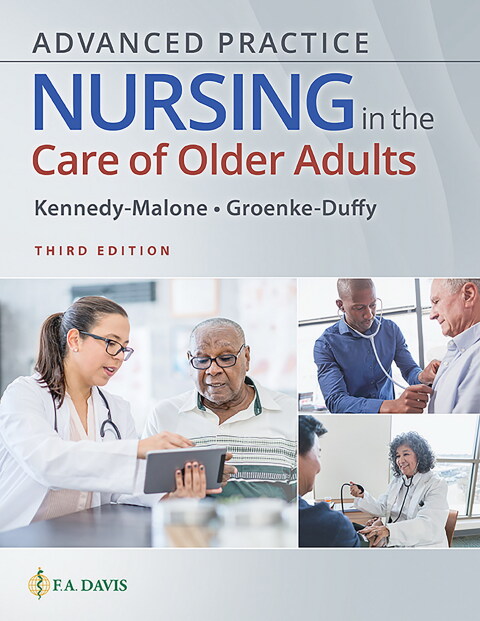Description
Efnisyfirlit
- Title Page
- Copyright
- Brief Contents
- Contents
- Boxed Features
- Gender/Diversity and Biopsychology Coverage
- Preface
- About the Authors
- 1. The Nature of Psychology
- Chapter Outline
- The Historical Context of Psychology
- The Roots of Psychology
- The Founding Schools of Psychology
- The Growth of Psychology
- Contemporary Perspectives in Psychology
- The Humanistic Perspective
- The Cognitive Perspective
- The Biopsychological Perspective
- The Sociocultural Perspective
- The Scope of Psychology
- Academic Fields of Specialization
- Professional Fields of Specialization
- Chapter Summary
- Key Terms
- Chapter Quiz
- Thought Questions
- 2. Psychology as a Science
- Chapter Outline
- Sources of Knowledge
- Common Sense
- Science
- Goals of Scientific Research
- Description
- Prediction
- Control
- Explanation
- Methods of Psychological Research
- Descriptive Research
- Correlational Research
- Experimental Research
- Statistical Analysis of Research Data
- Descriptive Statistics
- Correlational Statistics
- Inferential Statistics
- Ethics of Psychological Research
- Ethical Treatment of Research Data
- Ethical Treatment of Human Participants
- Ethical Treatment of Animal Subjects
- Chapter Summary
- Key Terms
- Chapter Quiz
- Thought Questions
- 3. Biopsychological Bases of Behavior
- Chapter Outline
- Nature Versus Nurture: Genes Versus Environment
- Behavioral Genetics
- Biological Communication Systems
- The Nervous System
- The Endocrine System
- Neuronal Activity and Neurotransmitters
- The Structure of the Neuron
- The Neural Impulse
- Synaptic Transmission
- Brain Functions
- Techniques for Studying Brain Functions
- Functional Organization of the Brain
- Cerebral Hemispheric Lateralization
- Neural Plasticity and Neurogenesis
- Chapter Summary
- Key Terms
- Chapter Quiz
- Thought Questions
- 4. Human Development
- Chapter Outline
- Research Methods in Developmental Psychology
- Longitudinal Research
- Cross-Sectional Research
- Cohort-Sequential Research
- Prenatal Development
- The Germinal Stage
- The Embryonic Stage
- The Fetal Stage
- Infant and Child Development
- Physical Development
- Perceptual Development
- Cognitive Development
- Psychosocial Development
- Adolescent Development
- Physical Development
- Cognitive Development
- Psychosocial Development
- Adult Development
- Physical Development
- Cognitive Development
- Psychosocial Development
- Chapter Summary
- Key Terms
- Chapter Quiz
- Thought Questions
- 5. Sensation and Perception
- Chapter Outline
- Sensory Processes
- Sensory Thresholds
- Sensory Adaptation
- Visual Sensation
- Light Waves
- Vision and the Eye
- Vision and the Brain
- Basic Visual Processes
- Visual Perception
- Form Perception
- Depth Perception
- Perceptual Constancies
- Visual Illusions
- Experience, Culture, and Perception
- Hearing
- Sound Waves
- The Auditory System
- Auditory Perception
- Chemical Senses
- Smell
- Taste
- Skin Senses
- Touch
- Pain
- Body Senses
- The Kinesthetic Sense
- The Vestibular Sense
- Extrasensory Perception
- Using Your Senses for Mindfulness
- Chapter Summary
- Key Terms
- Chapter Quiz
- Thought Questions
- 6. Consciousness
- Chapter Outline
- The Nature of Consciousness
- The Stream of Consciousness
- Attention
- The Unconscious
- Sleep
- Biological Rhythms and the Sleep-Wake Cycle
- Patterns of Sleep
- The Functions of Sleep
- Sleep Disorders
- Dreams
- The Content of Dreams
- The Purpose of Dreaming
- Hypnosis
- Hypnotic Induction and Susceptibility
- Effects of Hypnosis
- The Nature of Hypnosis
- Psychoactive Drugs
- Depressants
- Stimulants
- Other Psychoactive Drugs
- Other Hallucinogens
- Chapter Summary
- Key Terms
- Chapter Quiz
- Thought Questions
- 7. Learning
- Chapter Outline
- Classical Conditioning
- Principles of Classical Conditioning
- Applications of Classical Conditioning
- Biological Constraints on Classical Conditioning
- Operant Conditioning
- Principles of Operant Conditioning
- Applications of Operant Conditioning
- Biological Constraints on Operant Conditioning
- Cognitive Learning
- Cognitive Factors in Associative Learning
- Latent Learning
- Observational Learning
- Chapter Summary
- Key Terms
- Chapter Quiz
- Thought Questions
- 8. Memory
- Chapter Outline
- Information Processing and Memory
- Sensory Memory
- Short-Term Memory
- Long-Term Memory
- Encoding
- Storage
- Retrieval
- Forgetting
- Memory, Forgetting, and Eyewitness Testimony
- Children as Eyewitnesses
- Questioning the Eyewitness
- Improving Your Memory
- Using Effective Study Habits
- Using Mnemonic Devices
- The Biopsychology of Memory
- The Neuroanatomy of Memory
- The Neurochemistry of Memory
- Chapter Summary
- Key Terms
- Chapter Quiz
- Thought Questions
- 9. Thought and Language
- Chapter Outline
- Thought
- Concept Formation
- Logical Concepts
- Natural Concepts
- Problem Solving
- Approaches to Problem Solving
- Impediments to Problem Solving
- Creativity
- Characteristics of Creative People
- Creativity and the Sociocultural Environment
- Creativity and Divergent Thinking
- Decision Making
- Heuristics in Decision Making
- Framing Effects in Decision Making
- Artificial Intelligence
- Expert Systems
- Robotics
- Language
- The Structure of Language
- Phonology
- Syntax
- Semantics
- The Acquisition of Language
- Language Milestones
- Is There a Critical Period for Language Acquisition?
- Theories of Language Acquisition
- The Relationship Between Language and Thought
- The Linguistic Relativity Hypothesis
- Linguistic Relativity and Sexist Language
- Language in Apes
- Teaching Chimpanzees to Use Language
- Controversy About Ape-Language Research
- Chapter Summary
- Key Terms
- Chapter Quiz
- Thought Questions
- 10. Intelligence
- Chapter Outline
- Intelligence Testing
- The History of Intelligence Testing
- Standardization in Intelligence Testing
- Extremes of Intelligence
- Intellectual Developmental Disorder
- Mental Giftedness
- Theories of Intelligence
- Factor-Analytic Theories of Intelligence
- Sternberg’s Triarchic Theory of Intelligence
- Gardner’s Theory of Multiple Intelligences
- Nature, Nurture, and Intelligence
- Early Studies of Immigrants
- The Influence of Heredity and Environment on Intelligence
- Chapter Summary
- Key Terms
- Chapter Quiz
- Thought Questions
- 11. Motivation
- Chapter Outline
- The Nature of Motivation
- Sources of Motivation
- Maslow’s Hierarchy of Needs
- The Hunger Motive
- The Physiology of Hunger
- Obesity
- Eating Disorders
- The Sex Motive
- Biopsychological Factors in Sexual Behavior
- Psychosocial Factors in Sexual Behavior
- Sexual Dysfunctions
- Gender Identity
- Sexual Orientation
- The Arousal Motive
- Optimal Arousal
- Sensation Seeking
- The Achievement Motive
- Need for Achievement
- Goal Setting
- Intrinsic Motivation
- Chapter Summary
- Key Terms
- Chapter Quiz
- Thought Questions
- 12. Emotion
- Chapter Outline
- The Biopsychology of Emotion
- The Autonomic Nervous System and Emotion
- The Brain and Emotion
- The Chemistry of Emotion
- The Expression of Emotion
- Vocal Qualities and Emotion
- Body Movements and Emotion
- Facial Expressions and Emotion
- The Experience of Emotion
- Happiness
- Humor
- Theories of Emotion
- Biopsychological Theories of Emotion
- The Facial-Feedback Theory of Emotion
- Cognitive Theories of Emotion
- Chapter Summary
- Key Terms
- Chapter Quiz
- Thought Questions
- 13. Personality
- Chapter Outline
- The Psychoanalytic Approach to Personality
- Freud’s Psychosexual Theory
- Adler’s Theory of Individual Psychology
- Horney’s Theory of Feminine Psychology
- Jung’s Theory of Analytical Psychology
- Psychoanalytic Assessment of Personality
- Status of the Psychoanalytic Approach
- The Dispositional Approach to Personality
- Type Theories
- Trait Theories
- Dispositional Assessment of Personality
- Status of the Dispositional Approach
- The Cognitive-Behavioral Approach to Personality
- Social-Cognitive Theory
- Schema Theory
- Cognitive-Behavioral Assessment of Personality
- Status of the Cognitive-Behavioral Approach
- The Humanistic Approach to Personality
- The Self-Actualization Theory of Personality
- The Self Theory of Personality
- The Humanistic Assessment of Personality
- Status of the Humanistic Approach
- The Biopsychological Approach to Personality
- The Relationship Between Physique and Personality
- The Relationship Between Heredity and Personality
- Biopsychological Assessment of Personality
- Status of the Biopsychological Approach
- Chapter Summary
- Key Terms
- Chapter Quiz
- Thought Questions
- 14. Psychological Disorders
- Chapter Outline
- Characteristics of Psychological Disorders
- Criteria for Psychological Disorders
- Classification of Psychological Disorders
- Criticisms of the Diagnosis of Psychological Disorders
- Anxiety Disorders
- Generalized Anxiety Disorder
- Panic Disorder
- Phobias
- Obsessive-Compulsive Disorders
- Characteristics of Obsessive-Compulsive Disorder
- Causes of Obsessive-Compulsive Disorder
- Dissociative Disorders
- Dissociative Identity Disorder
- Causes of Dissociative Identity Disorder
- Major Depressive Disorder and Related Disorders
- Major Depressive Disorder
- Seasonal Affective Disorder
- Suicide and Major Depressive Disorder
- Bipolar Disorders
- Characteristics of Bipolar Disorder
- Causes of Bipolar Disorder
- Schizophrenia
- The Nature of Schizophrenia
- Causes of Schizophrenia
- Personality Disorders
- Borderline Personality Disorder
- Antisocial Personality Disorder
- Neurodevelopmental Disorders
- Autism Spectrum Disorder
- Attention Deficit Hyperactivity Disorder (ADHD)
- Chapter Summary
- Key Terms
- Chapter Quiz
- Thought Questions
- 15. Psychological and Biological Treatments
- Chapter Outline
- A Brief History of Treatment
- 18thand 19th-Century Reforms
- The Mental Health Movement
- The Psychoanalytic Orientation
- The Nature of Psychoanalysis
- Techniques in Psychoanalysis
- Offshoots of Psychoanalysis
- The Behavioral Orientation
- Classical Conditioning Therapies
- Operant Conditioning Therapies
- Social-Learning Therapies
- The Cognitive Orientation
- Rational-Emotive Behavior Therapy
- Cognitive Therapy
- The Humanistic Orientation
- Client-Centered Therapy
- The Biological Orientation
- Psychosurgery
- Electroconvulsive Therapy
- Drug Therapy
- Finding the Proper Treatment
- Selecting the Right Therapist
- Bibliotherapy as an Alternative
- The Effectiveness of Psychotherapy
- Evaluation of Psychotherapy
- Factors in the Effectiveness of Psychotherapy
- Chapter Summary
- Key Terms
- Chapter Quiz
- Thought Questions
- 16. Health and Stress
- Chapter Outline
- Psychological Stress and Stressors
- Life Changes
- Daily Hassles
- The Biopsychology of Stress and Illness
- General Adaptation Syndrome
- Stress and Cardiovascular Disease
- Stress and Immune Functioning
- Stress and Cancer
- Factors That Moderate the Stress Response
- Physiological Reactivity
- Cognitive Appraisal
- Explanatory Style
- Perceived Control
- Psychological Hardiness
- Social Support
- Coping With Stress
- Emotional Release and Stress Management
- Stress-Inoculation Training
- Exercise and Stress Management
- Relaxation and Stress Management
- Health-Promoting Habits
- Keeping Physically Fit
- Maintaining a Healthy Diet and Body Weight
- Avoiding Tobacco Products
- Reactions to Illness
- Seeking Treatment for Health Problems
- Relieving Patient Distress
- Encouraging Adherence to Medical Regimens
- Chapter Summary
- Key Terms
- Chapter Quiz
- Thought Questions
- 17. Social Psychology
- Chapter Outline
- Social Cognition
- Causal Attribution
- Person Perception
- Interpersonal Attraction
- Liking
- Romantic Love
- Attitudes (Including Prejudice)
- The Formation of Attitudes
- The Art of Persuasion
- Prejudice
- Group Dynamics
- Group Decision Making
- Group Effects on Performance
- Social Influence
- Aggression
- Theories of Aggression
- Group Violence
- Prosocial Behavior
- Altruism
- Bystander Intervention
- Chapter Summary
- Key Terms
- Chapter Quiz
- Thought Questions
- Answers to Section Review Questions
- Answers to Chapter Quiz Questions
- Appendix A: Industrial/Organizational Psychology
- Appendix B: Statistics
- Key Contributors
- Glossary
- References
- Subject Index
- Name Index







Reviews
There are no reviews yet.